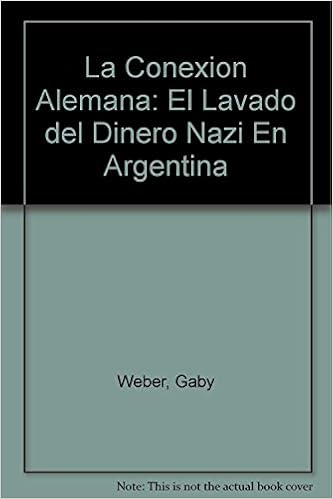BUENOS AIRES - That scores of fugitive Nazis found their way to Argentina after World War II, aided and abetted by Gen. Juan D. Perón, is no secret. But according to a book just published here that draws extensively on archival material only now being made available to researchers, his government also offered a haven for the profits of German companies that had been part of the Nazi war machine and whose assets the victorious Allies would otherwise have seized.
In "The German Connection: The Laundering of Nazi Money in Argentina," Gaby Weber, a German journalist, argues that the Perón dictatorship sponsored an operation to move illicitly obtained wealth to Argentina and then back to Germany. For nearly a decade, her book asserts, German-made cars, trucks, buses and even the machinery for entire factories flowed into Argentina, paid for with dollars that were then used to help finance the "German economic miracle."
To the chagrin of Argentines who still revere him and his wife, Evita, the evidence she presents indicates that Perón and a few favorites around him also took a cut. But Ms. Weber, who has lived and worked in South America since the mid-1980's, said she was mainly interested in what she described as two parallel but complementary money streams to and from Germany, which were involved in and benefited from the arrangement.
"One must make a distinction between the Nazi Party organization and the companies, which had no interest in financing a Nazi resurgence," she said in a recent interview here. "My focus is on the official Argentine government operation to help those companies launder their money, but a lot of Nazis also did it on their own, hoping to reconstruct the party" from their hiding places here.
Ms. Weber's book, published in German and Spanish, is based in part on research in the corporate archives of Mercedes-Benz and on interviews with Argentines and Germans who took part in the scheme. But she also consulted government records of Germany, the United States and, particularly, Argentina, where she found transcripts of interrogations of participants after Perón's ouster in September 1955, and other official documents that until now were generally off-limits to researchers. (more...)



No comments:
Post a Comment